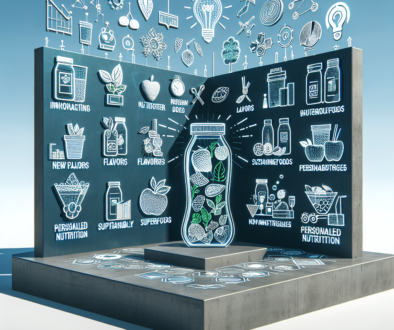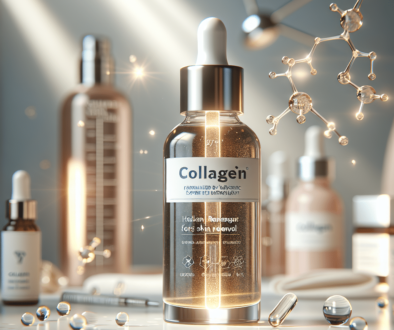Effect Of 17¦¢-Estradiol On The Expression Of Caveolin-1 And Type Iii Collagen In Mouse Lung Fibroblasts Stimulated By Sio 2
Keywords
17¦¢-Estradiol Lung Fibroblast Caveolin-1 Type ¢ó Collagen 17¦¢-Estradiol Lung Fibroblast Caveolin-1 Type ¢ó Collagen
Abstract
Objective To explore the effects of different concentrations of 17¦Â-estradiol (17¦Â-E2) on the expression of Caveolin-1 and type III collagen in mouse lung fibroblasts stimulated by silicon dioxide (SiO2). Methods Mouse lung fibroblasts cultured in vitro were divided into 5 groups: blank control group, SiO2 (100 mg/L) group, SiO2 (100 mg/L) + different doses of 17¦Â-E2 group (10-8, 10-7 , 10-6 mol/L), cells in each group were collected after 48 h of 17¦Â-E2 treatment, and immunohistochemistry was used to detect the expression of Caveolin-1 and type III collagen. Results Compared with the blank control group, the expression of Caveolin-1 in the lung fibroblasts of mice in the SiO2-treated group was reduced (P<0.05), while the expression of Caveolin-1 in the SiO2+ 17¦Â-E2-treated group increased significantly as the dose of 17¦Â-E2 increased (P <0.05); the difference in expression of type III collagen in each treatment group was statistically significant (P<0.05). The SiO2 group was higher than the blank control group (P<0.05), while the 17¦Â-E2 treatment group was lower than the SiO2 group (P<0.05). 0.05); correlation analysis showed that 17¦Â-E2 was positively correlated with the expression of Caveolin-1 (r=0.926, P<0.05), and negatively correlated with the expression of type III collagen (r=-0.914, P<0.05). Caveolin-1 There was also a negative correlation with the expression of type III collagen (r=-0.887, P<0.05). Conclusion 17¦Â-E2 may exert anti-fibrotic effects by upregulating the expression of Caveolin-1 in lung fibroblasts and inhibiting the expression of type III collagen. Objective To observe the effects of different concentration of 17¦Â-estradiol (17¦Â-E2) on the expression of Caveolin-1 and type III collagen in the mouse lung fibroblast stimulated by SiO2. Methods Fibroblast cells were devided into five groups: blank control group, SiO2 (100 mg/L) group and SiO2 (100 mg/L)+ different concentration of 17¦Â-E2 (10-8, 10-7, 10-6 mol/L) groups. After treated with different concentration of 17¦Â-E2 , for 48 h, the cells were collected, then the expression of Caveolin-1 and of type ¢ó collagen were examined with immunohistochemistry method. Results Compared with the blank control group, the expression of Caveolin-1 in mouse lung fibroblasts treated by SiO2 significantly decreased (P <0.05), While which in the SiO2+17¦Â-E2 group significantly increased as 17¦Â -E2 dose increased (P < 0.05); There were significantly different in the expression of type ¢ó collagen among different groups (P <0.05) , which in SiO2 group were evidently higher than that in the blank control group, while which in 17¦Â-E2 groups decreased significantly, when compared with SiO2 group (P <0.05); 17¦Â-E2 increased the expression of Caveolin-1 and decreased the expression of type ¢ó collagen in the dose dependent manner. Correlation analysis showed that 17¦Â-E2 was positively correlated with the expression of Caveolin-1 (r=0.926, P <0.05), and negative correlated with the express of type ¢ó collagen (r =-0.914, P <0.05), and the expression of Caveolin-1 and the expression of type ¢ó collagen was negatively correlated (r=-0.887, P <0.05). Conclusion 17¦Â-E2 may inhibit the expression of type ¢ó collagen by up-regulating the expression of Caveolin-1 in mouse lung fibroblast cells to play a role in the resistance of the lung fibrosis. For further information of this article and research, feel free to contact our team for asssitance. Original research was done by Xiao Yonghong, Liang Xiaofei, Wang Yue, etc.
About ETChem
ETChem, a reputable Chinese Collagen factory manufacturer and supplier, is renowned for producing, stocking, exporting, and delivering the highest quality collagens. They include marine collagen, fish collagen, bovine collagen, chicken collagen, type I collagen, type II collagen and type III collagen etc. Their offerings, characterized by a neutral taste, and instant solubility attributes, cater to a diverse range of industries. They serve nutraceutical, pharmaceutical, cosmeceutical, veterinary, as well as food and beverage finished product distributors, traders, and manufacturers across Europe, USA, Canada, Australia, Thailand, Japan, Korea, Brazil, and Chile, among others.
ETChem specialization includes exporting and delivering tailor-made collagen powder and finished collagen nutritional supplements. Their extensive product range covers sectors like Food and Beverage, Sports Nutrition, Weight Management, Dietary Supplements, Health and Wellness Products, ensuring comprehensive solutions to meet all your protein needs.
As a trusted company by leading global food and beverage brands and Fortune 500 companies, ETChem reinforces China’s reputation in the global arena. For more information or to sample their products, please contact them and email karen(at)et-chem.com today.



